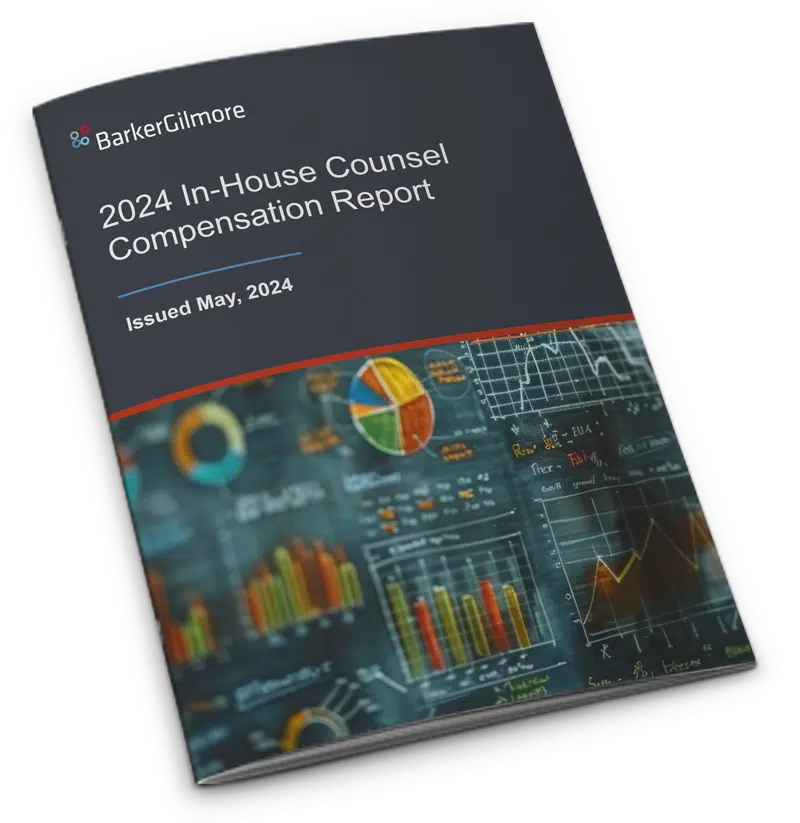Enhancing Your Emotional Intelligence and Communication Skills in the ‘New Normal’ Work Environment
While knowledge and technical abilities are required for on-the-job success, it takes more than that to have a fulfilling career. Emotional intelligence — the ability to manage emotions and recognize emotions in others — and strong communication skills are necessary for having a rewarding professional life.
In the GC AdvantageSM webinar, “Enhancing Your Emotional Intelligence and Communication Skills in the ‘New Normal’ Work Environment,” Deneen Donnley, Senior Vice President and General Counsel of Consolidated Edison, Inc., and James Sharkey, Latin America General Counsel of Chubb Ltd., joined me for a conversation about emotional intelligence and communication skills and how leaders and other employees can enhance these skills in the workplace. This article is a summary of our discussion.
Emotional Intelligence and Why It Matters
Emotional intelligence is the ability to identify and manage emotions, recognize emotions in others, understand what those emotions mean, and use that information to nurture relationships and guide behavior. It is a learned skill that may help manage stress, improve job satisfaction, and create better leadership practices. Emotional intelligence has four main components: self-awareness, self-management, social awareness, and relationship management.
Self-Awareness
Self-awareness is the ability to identify emotions in different settings, including how they are triggered. There are several ways to enhance self-awareness:
- Engage in self-reflection. Try to act as an objective bystander to understand any triggered thoughts and reactions after an interaction.
- Look for physical cues. Noticing personal physical cues is just as important as looking at these cues in other people, particularly during tense or stressful conversations. According to Deneen, “[I want to make sure] I’m not giving some kind of physical indication that either I disagree until I’m ready to state whatever my opinion is or that I am somehow impatient for them to get through with their words so that I can simply counter.”
- Review prior incidents. Be willing to reflect on situations to understand why certain emotions were triggered.
- Look for trends and potential stressors. Try to understand where stress comes from, such as not getting enough sleep or juggling too much at work and home.
- Ask for feedback. Often other people’s perceptions are different from our own. Asking for others’ opinions can provide a clearer picture of how behaviors and actions are received.
Self-Management
Identifying emotions is one component but being able to control those emotions is also necessary. Being overly emotional and reactive can negatively impact a person’s reputation. A few tips for building up self-management skills include:
- Slow down when reacting. Take a few moments and count to ten before replying in an emotionally charged situation. It may be more appropriate to leave the conversation to think before making any significant decisions.
- Avoid stressors. Reduce news and social media consumption when going through a particularly stressful period. Adjust schedules to avoid reading work emails right before bed. When feeling stressed, try to get physical exercise when possible. “Go to the gym for an hour at lunchtime,” says Jim. “[Do] something that gets you away from the mind space of being in the office and dealing with whatever the problems are you’re dealing with.”
- Consider different perspectives. People do things for many reasons, most of which have nothing to do with us. Do not assume to know why any person behaves in a certain way. Instead, try to see things from another point of view.
Social Awareness
To effectively work in a team setting, it is vital to understand and anticipate others’ feelings. Every person in a working relationship, including the boss, employee, and client, has varying needs and pressures. Understanding these can create a more positive experience for all. Here are a few ways to improve social awareness:
- Use effective communication skills. Try to relay information that is both easy to understand and conveys an interest in the other person’s thoughts.
- Engage in active listening. When someone else is speaking, avoid doing anything potentially distracting, like answering an email or thinking about what to say next. Active listening can be particularly tricky when speaking with someone remotely as it is more difficult to notice specific cues.
- Use ears and eyes. Pay attention to what the person is saying, as well as what they are not saying. Take the person’s body language into account. Notice the tone, speed, and volume that the person is using. Look at the person’s posture, facial expressions, and eye contact; a great deal of communication is nonverbal.
- Ask questions. Not only does asking questions provide needed clarity but it also shows the listener is interested in learning more.
Relationship Management
Some relationships come naturally, but many require a great deal of work. Still, it is crucial to put in this work because building relationships can be critical to both success and happiness. While trying to be everyone’s friend is unrealistic, find a way to build an appropriate relationship with regular contacts. A few practical ways to manage these relationships can include:
- Authentic communication. Consider having informal get-togethers where the purpose is to get to know each other. Ask questions to understand where each person is coming from and to learn more about everyone. Say thank you, give credit, and, during stressful moments, do not be afraid to use humor to help get past difficult situations.
- Build trust. Building trust often starts from a place of vulnerability. Apologizing and being able to admit when one is wrong is crucial to creating a trusting relationship. Also, consider asking how to help someone struggling or asking questions during a rough period. Be consistent in both words and actions. Deneen advises, “You always want to make sure your words and deeds align, but I think there are times when they don’t because of, say, policy. Being willing to explain it and answer questions, hearing the concerns of your team, and trying to offer innovative solutions goes a long way. I would remind people to be innovative because sometimes things don’t go the way you thought they would.”
- Utilize meetings appropriately. Meetings are an excellent time to engage in small talk; give everyone a chance to speak, ask questions, and learn something new. Even when speaking on business matters, meetings can be an opportunity to understand how team members think and work together.
Effective Communication
In today’s increasingly digital world, knowing how best to communicate through email, video chat, and instant messaging is necessary. These types of communication require different tactics than in-person discussions, especially since each make noticing important social cues difficult, if not impossible.
When not looking for an immediate response or sending a more formal message, an email can be an effective means of communication. Read an email carefully before pressing the “send” button to check for brevity, clarity, and tone.
When receiving an email, it can be helpful to read it with a neutral tone. Try to get to the heart of what the other person is saying. Do not feel the need to respond right away, especially if the email is stressful or evokes negative emotions. If time allows, wait for these feelings to pass before thoughtfully replying.
Hiring and Emotional Intelligence
When hiring a new person to join the team, leaders should try to ensure that a prospective employee possesses the requisite emotional intelligence. To achieve this, ask open-ended questions. Someone with high emotional intelligence will answer authentically and be careful to not dominate the conversation. The interviewee’s response should give a sense of how this person will build relationships with clients and other team members.
Conclusion
Emotional intelligence is one of the most important traits a leader or employee can have. That is why BarkerGilmore holds it in such high regard, together with communication skills, when working to place high-ranking candidates.
As always, reach out anytime if you or your organization may benefit from BarkerGilmore’s recruiting, leadership development, or legal and compliance department consulting services.
Maureen Brundage and our team of professionals are happy to help accelerate the initiatives that you’re already pursuing or to supplement your current strategic thinking to help you realize your vision. Please reach out if you or your organization may benefit from our recruiting, leadership development and coaching, or legal and compliance department consulting services. Let BarkerGilmore help you build and optimize your legal and compliance departments.
Connect with a legal recruiting advisor
* indicates required fields






